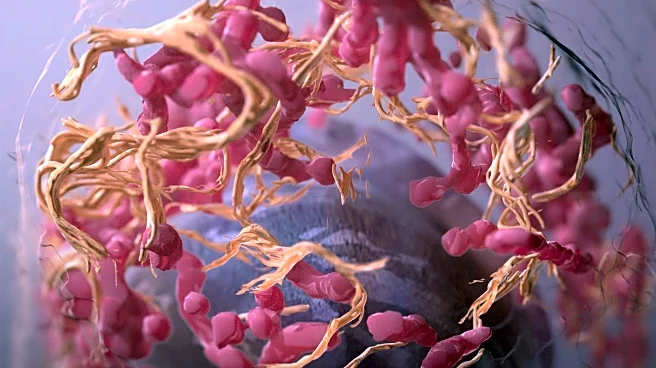What's Happening?
A retrospective analysis of Treosulfan-based conditioning in patients with myelodysplastic syndromes (MDS) has shown promising outcomes, with improved overall survival and reduced non-relapse mortality compared to traditional methods. The study included 61 patients who underwent allogeneic stem cell transplantation between 2010 and 2022. The analysis identified abnormal cytogenetics and pretransplant cytoreduction as factors influencing posttransplant outcomes, while pretransplant disease burden did not significantly impact results. The findings suggest that Treosulfan conditioning is effective in MDS treatment, independent of pretransplant bone marrow blast count.
Why It's Important?
This study provides valuable insights into the effectiveness of Treosulfan-based conditioning for MDS, a condition primarily affecting older patients. The reduced toxicity of Treosulfan offers a safer alternative for patients undergoing stem cell transplantation, potentially improving survival rates and quality of life. The findings could influence clinical practices and treatment protocols, encouraging the adoption of Treosulfan conditioning in MDS management. Additionally, the study challenges the common use of pretransplant cytoreduction, suggesting it may not be beneficial and could even be disadvantageous.
What's Next?
The study's authors recommend prospective trials to compare sequential conditioning with Treosulfan-based methods, aiming to refine treatment strategies for MDS. Further research is needed to explore the impact of abnormal cytogenetics and pretransplant strategies on outcomes, as well as the potential incorporation of novel approaches into conditioning. Stakeholders such as healthcare providers, researchers, and patients may benefit from these findings, leading to improved treatment options and patient outcomes.











